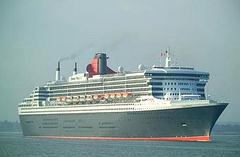 歐盟各國已同意立法限制船舶燃料中含硫成分的上限,將於十年內在歐盟各國生效。
歐盟各國已同意立法限制船舶燃料中含硫成分的上限,將於十年內在歐盟各國生效。
燃燒高含硫成分的船舶燃料將排放出二氧化硫,導致海水酸化及危害人類健康。歐盟執行委員估計,燃燒高含硫成分的船舶燃料導致歐盟27國每年50000人過早死亡。
歐盟環境執委波托奇尼克(Janez Potocnik)表示,再不加以管制,2020年起航運排放總和將超過所有陸源排放量。他指出,「很高興看到各會員國支持立法,降低船舶造成的硫及二次懸浮微粒排放。這對我們的健康及環境而言是一個大好消息,特別是在沿海地區,且這意味與歐盟議會達成共識,降低船隻燃料硫含量的可能性。」
這項新法律,採用了國際海事組織(IMO)絕大部分應用於歐盟的最新船用燃油標準。
法綠條文是由歐盟部長理事會(丹麥擔任輪值主席)、歐洲議會和歐盟執委會透過非正式會議協商而來。
根據新法律,2020年起,所有船舶燃料中硫含量最高上限由現今的貨船為3.5%和1.5%客船含量調降為0.5%。
更進一步,2015年起,「硫排放控制區」將全面調降硫含量為0.1%。此控制區包含了北海,波羅的海和英吉利海峽的船隻。目前這些地方的燃油含硫上限為1%。
根據歐盟執委會資料,為了因應新法規,估計航運業要耗資26至110億歐元來轉換燃料及廢氣過濾裝置。但因為嚴格限制硫化物排放而增進的公眾健康效益,則估計有150至300億歐元。
降低燃油硫含量的設備更新成本,可能會對船舶業的競爭力造成負面影響,導致產業轉型由海洋轉向陸地;為此,會員國可在歐盟規範內提供業者補貼。該協議要求歐盟執委會「充分利用」已就位的金融設施,並推動降低船舶排放替代技術的開發和測試。
芬蘭籍歐洲議會綠黨議員Satu Hassi,曾在今年2月此項提案獲採用後表示:「高污染的運輸燃料對環境、公眾健康造成嚴重影響」。3月23日歐盟國同意法案後,Hassi讚許他們「在面臨來自重污染船運業的極力遊說下」所做的決定。
該協議中明訂,各成員國對違反者設立的罰款門檻不得低於法規內所訂的罰款。這項協議必須得到歐盟部長們及法規定訂者的許可,預定在9月之前可以完成。
在協議生效後,會員國將有18個月的時間來制訂必要的國家性規範。
歐盟執行委員預定於2013年12月可以撰寫有關降低船隻造成的空氣污染的報告,在回顧委員會2013年的空氣品質政策時間表後,委員會將會決定包括各會員國領海在內所有降低空氣污染的可能方案。
EU governments have agreed on legislation to limit the maximum sulfur content of shipping fuels that will take effect across the European Union at the end of the decade.
Burning marine fuels with high sulfur content emits sulfur dioxide and particulate matter, which contribute to ocean acidification and harm human health.
The European Commission estimates that burning high sulfur marine fuels causes 50,000 premature deaths each year in the 27 EU member states.
Without this directive, said EU Environment Commissioner Janez Potocnik, emissions from shipping would by 2020 exceed emissions from all land-based sources."I am pleased that legislation to reduce sulfur and hence secondary particulate matter emissions from ships now have the political support of member states," Potocnik said.
"This is excellent news for our health and the environment, especially in ports and coastal areas, as it means that an agreement with the European Parliament on the directive on the sulfur content of marine fuels is now possible," he said.
The new law renders the most recent International Maritime Organization rules on marine fuel standards mandatory in the European Union.
The text of the agreement was negotiated in informal meetings between the Council of Ministers, represented by the Danish presidency, the European Parliament and the European Commission.
Under the new law, the maximum sulfur content of fuels will be limited to 0.5 percent for all ships from 2020, down from today's content levels of 3.5 percent for cargo vessels and 1.5 percent for passenger ships.
A stricter limit of 0.1 percent will apply from 2015 to ships operating in "sulfur emission control areas," which include the North Sea, the Baltic Sea and the English Channel. The limit in these areas now is one percent.
According to the European Commission, switching fuels or exhaust filters to meet the new limits will cost the shipping industry between 2.6 billion and 11 billion euros.
These costs are estimated to be outweighed by public health benefits of stricter sulfur limits of between 15 billion and 30 billion euros.
Since the costs of new requirements to reduce sulfur emissions could have negative effects on the competitiveness of the industry and could produce a modal shift from sea to land, member states may provide support to operators as long as support is in line with EU state aid rules.
The agreement asks the Commission to make "full use" of financial instruments already in place and promote the development and testing of alternative technologies to reduce emissions from ships.
"Highly polluting shipping fuels have a serious impact on the environment but also on public health," said Satu Hassi of Finland, a Green Member of the European Parliament, after her legislative report was adopted in February.
Once the EU member governments came to agreement on the directive May 23, Hassi complimented them for their determination "in the face of heavy lobbying from polluting shipping companies..."
Financial penalties for violators to be set by member states should at least be equivalent to the benefits of infringing the directive, the agreement states.
The agreement must be approved by EU ministers and lawmakers, a process that is expected to be completed by September at the latest.
Member states will have 18 months after the entry into force of the directive to adopt the necessary national provisions.
The Commission is expected to write a report by December 2013 considering the potential for reducing air pollution by ships. In the review of the Commission's air quality policy scheduled for 2013, the Commission will consider all possibilities how to reduce air pollution, including in the territorial seas of member states.






